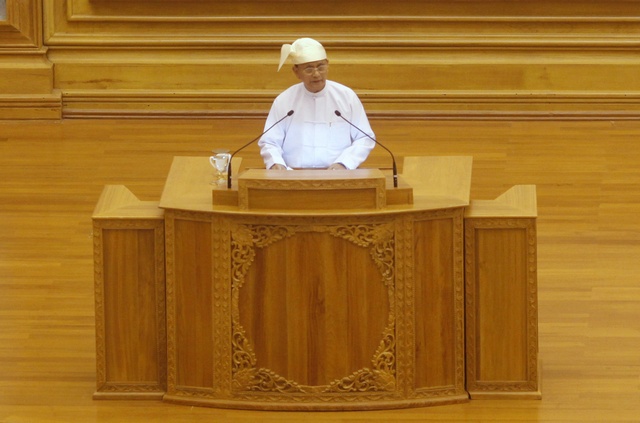Burma’s parliament approved a new piece of anti-corruption legislation on Friday, despite calls from President Thein Sein to remove a clause deemed “unconstitutional”.
The controversial clause requires members appointed to a new anti-corruption commission to declare their assets, which the president says breaches constitutional law.
“The president previously recommended to remove the clause from the bill as it was not in conformity with the 2008 constitution because the constitution didn’t force commission members to declare assets,” said lower house member Ye Htun.
“But the parliament decided that it cannot be assumed the clause was against the constitution just because the constitution didn’t say so and [parliamentarians] decided to approve the bill as it was.”
[related]
On 8 July, the president’s request was officially rebuffed by the parliament’s bill committee, which argued that the provision was in line with the country’s existing legal framework, reported Eleven News group.
Burma’s constitution allows the parliament to ignore legislative recommendations made by the president.
In January, President Thein Sein announced the formation of a committee to tackle corruption in Burma’s notoriously secretive government bodies, according to a statement published on his official website.
In accordance with the new legislation, the 15-member commission will be appointed by speakers from the upper and lower houses of parliament as well as the president. Their nominations will then be submitted to the union parliament for approval.
Burma ranked 172 out of 176 countries measured in Transparency International’s 2012 corruption perception index.



